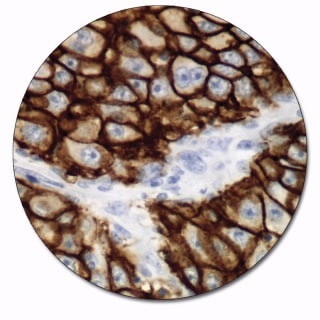
Lung adenocarcinoma
Epithelial Antigen (Autostainer Link 48)

Mass spectrometry, chromatography, spectroscopy, software, dissolution, sample handling and vacuum technologies courses
On-demand continuing education
Instrument training and workshops

Lung adenocarcinoma

| Application |
|
| Clone |
|
| Code Number |
|
| Immunogen |
|
| Isotype |
|
| Reagent Provided |
|
| Solutions |
|
| Species |
|
| Specificity |
|
The Atlas of Controls illustrates the staining performance of each antibody in the FLEX Ready-to-Use system.